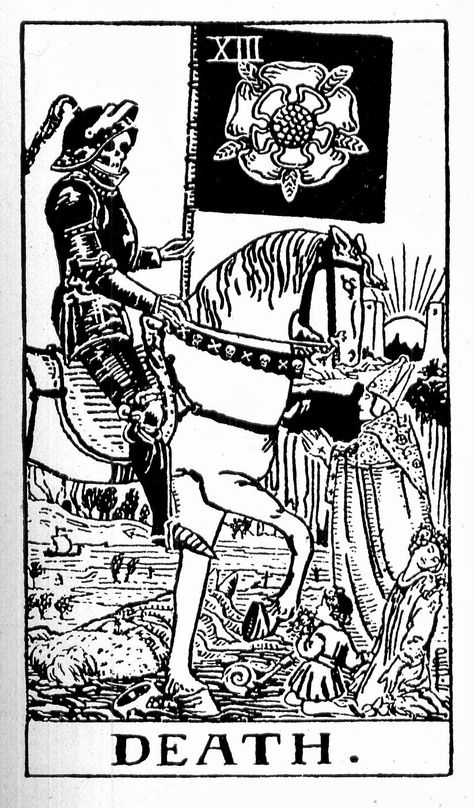
death
Share
death looms in the tarot deck like an unwelcome specter, misunderstood and maligned, but in truth, it is the card of revolution. it is the blade that cuts through stagnation, the fire that clears deadwood, the force that demands transformation. through the lenses of queer theory and social anarchism, the death card is not an end—it is the permission to shed, to slough off what no longer serves, to unmake and rebuild.
those navigating the complexities of queer identities might see the death card reflecting their transformative experiences of coming out, transitioning, or embracing their true selves. these significant changes necessitate letting go of previous identities, roles, or societal expectations—each an emotional journey, yet essential for living authentically. in this context, the death card symbolizes a liberating release, reassuring those undergoing profound changes that such endings are crucial stepping stones to a reborn, self-accepted existence.
the death card can also symbolize the critical need to dismantle oppressive and outdated societal structures. it advocates for the death of old systems that uphold inequality, prompting a revolutionary overhaul to establish new, equitable forms of community and interaction. this interpretation positions the death card as a radical prompt for collective action, encouraging a break from hierarchical norms to rebuild societies that prioritize mutual aid, cooperation, and collective well-being.
these perspectives—examining personal identity and societal structures—highlight how the death card represents essential endings as precursors to significant renewal. whether in personal transformations or in social revolutions, this card invites us to view transitions not with apprehension but with courage and readiness for the positive shifts they bring. it underlines that transformation, however challenging, is vital for ushering in periods of growth and rejuvenation.
the death card, thus, transforms from a symbol of fear to one of hope, embodying the vast possibilities that emerge from embracing change. it inspires us to perceive our personal transformations and societal changes as opportunities for profound renewal and growth. by accepting inevitable endings in our lives and advocating for the dismantling of oppressive systems, we make space for new beginnings enriched with promise and potential.
embracing the death card encourages a narrative of empowerment, urging us to let go of the old and make way for new life—a life that celebrates diversity, strives for equality, and builds communities founded on understanding and mutual respect. this perspective shifts the card from a harbinger of doom to a symbol of life's perpetual renewal, essential for personal authenticity and societal evolution.
